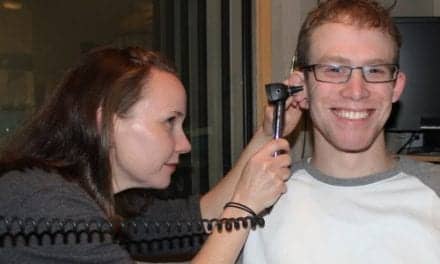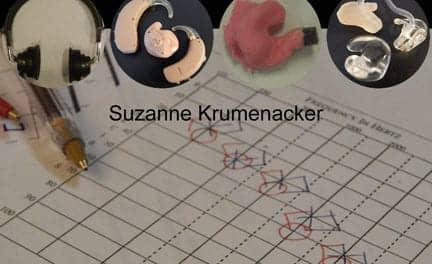People who have osteoporosis face a 1.76-fold higher risk of developing sudden deafness than those who do not have the bone disease, according to a new study published in the April 16, 2015 edition of the Endocrine Society’s Journal of Clinical Endocrinology & Metabolism. According to an Endocrine Society announcement, osteoporosis, a progressive condition in which bones become structurally weak and are more likely to fracture or break, more than 40 million people nationwide have osteoporosis or are at risk of developing the condition due to low bone mass. And, osteoporosis can make one susceptible to other health issues, say the study authors.
“A growing body of evidence indicates that osteoporosis affects not only bone health, but the cardiovascular and cerebrovascular systems,” said one of the study’s authors, Kai-Jen Tien, MD, of the Chi Mei Medical Center in Taiwan. “Our findings suggest sudden sensorineural hearing loss (SSHL) can be another broader health problem connected to osteoporosis.”
In their article, Tien and co-authors explain that sudden sensorineural hearing loss, or sudden deafness, typically occurs in one ear and can happen all at once or over the course of several days. About half of the people who develop SSHL will spontaneously regain their hearing, but it is important to seek treatment immediately. About 85 percent of those who are treated for the condition recover some hearing.
The retrospective cohort study reportedly examined medical records for 10,660 Taiwan residents who were diagnosed with osteoporosis between 1999 and 2008, compared them to 31,980 people who did not have the condition. Using national insurance records, the researchers analyzed how many participants were diagnosed with sudden deafness by the end of 2011.
The researchers report that participants who were diagnosed with osteoporosis had a much higher risk of developing sudden sensorineural hearing loss than the control group. Among the participants who had osteoporosis, 91 were diagnosed with SSHL during the follow-up period. In comparison, the control group, which was triple the size, included 155 people who were diagnosed with SSHL.
The researchers are not yet sure what biological mechanism is responsible for the relationship between osteoporosis and SSHL, but Tien theorizes that cardiovascular risk factors, bone demineralization, inflammation, and endothelial dysfunction may contribute to the association.
“More people worldwide are suffering from osteoporosis, and our work shows they are at risk of sensorineural hearing loss as well as bone fracture and other problems,” Tien said. “Patients who have osteoporosis should be aware they need to seek medical help immediately if they experience hearing loss.”
The study, “Increased Risk of Sudden Sensorineural Hearing Loss in Patients with Osteoporosis: A Population-based, Propensity Score-matched, Longitudinal Follow-up Study,” will be published online ahead of print.
Source: Endocrine Society
Photo credit: © Katarzyna Bialasiewicz | Dreamstime.com





